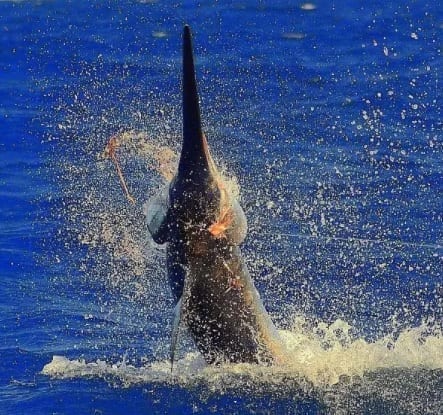Environmentalists Push to Keep Bycatch from Being Snagged
Environmentalists are attempting to protect bycatch, including whales, sea turtles and dolphins from inadvertently being snared in gillnets used for catching swordfish in California despite receiving push back by politicians.

In 2015, the Pacific Fishery Management Council, made up of a mix of fisherman, scientists, government officials and academics, endorsed a rule which would would put limits on the animals accidentally snagged. Under the rule, the swordfish grounds off of Southern California would be temporarily closed to commercial harvests if limits set for any of the nine protected marine creatures were reached or exceeded. These include bottle nose dolphins, four species of whale and four types of sea turtles. If more than two to four of these animals became entangled in the nets, the entire sword fishery would be halted for up to two years.
Final approval from the U.S. National Marine Fisheries Service was withdrawn last month after the Commerce Department determined the cost of the proposed program far exceeded the benefits, Michael Milstein revealed in a statement issued on Thursday. He did remind those concerned that fisherman had begun to utilize new measures to cut back on bycatch, including using a device that lowers the top of the net below the surface of the water where turtles and whales are most likely to swim. The number of wildlife being accidentally captured has been greatly reduced by instituting new measures since the 1990s.
However, a lawsuit was filed on Wednesday in the U.S. District Court in Los Angeles by Oceana, an environmental group, accusing the Commerce Department of violating the federal Administrative Procedures Act. The filing seeks an order from the court ensuring the agency puts additional restrictions into place. “This rule is critical to protect endangered whales and turtles from death and injury in this wasteful fishery,” Oceana attorney Mariel Combs said. According to the organization, approximately 61 percent of all animals captured between 2004 to 2017 were bycatch, and 35 sea turtles, 53 whales and hundreds of seals, sea lions and dolphins ended up being among this percentage between 2001 and 2015.
“We should not be killing any” marine mammals, said Geoff Shester, a senior scientist at Oceana, who was “furious” when he found out the National Oceanic and Atmospheric Administration (NOAA) had decided to against adopting the rule. “We don’t usually see politics from a high level affect fisheries,” he said. “The fact that this rule was something that came out of the Pacific Fishery Management Council, and was denied, that’s highly unusual.”

However, Jim Carretta, a research fishery biologist for NOAA he was happy about the decision, stating the limits imposed were seemingly arbitrary, and “they didn’t seem to be informed by the theoretical underpinnings of how marine mammal populations increase and recover.” He added, “Nobody likes bycatch. No one ever wants to see a dead dolphin. But one always has to put it in the context of the population as a whole.”
Temporary protection of sea life was put into place in 2014 after fishing operations for sixteen boats were disabled. These boats had can annual swordfish and thresher shark yield valued on average at $1 million. Oceana is seeking a more permanent solution.
Sources:
Trump administration overturns rule limiting by-catch of whales, sea turtles and dolphins
Lawsuit seeks to protect whales, turtles from California gillnets


Join the conversation!